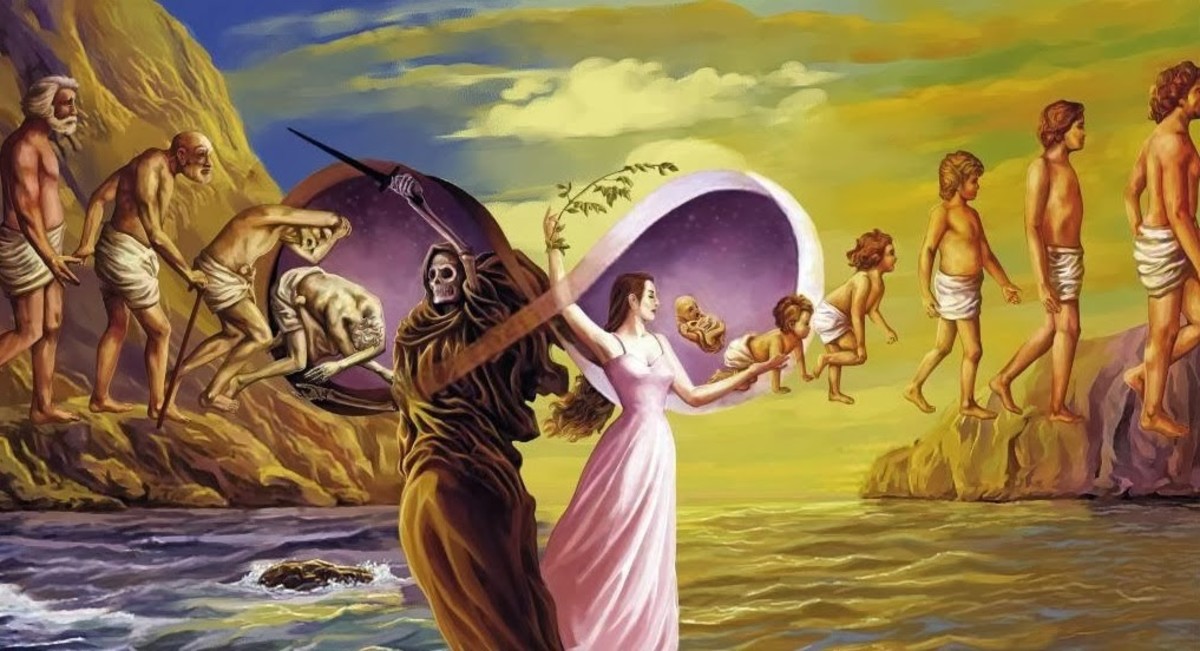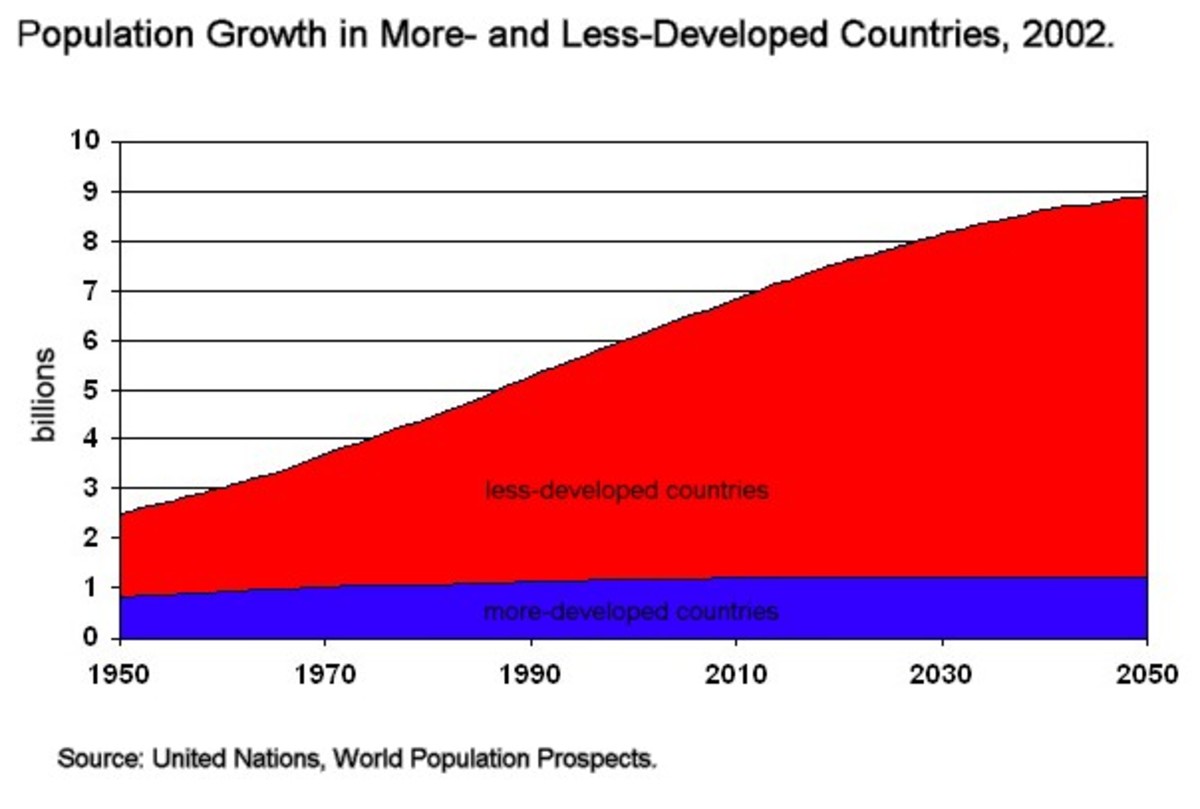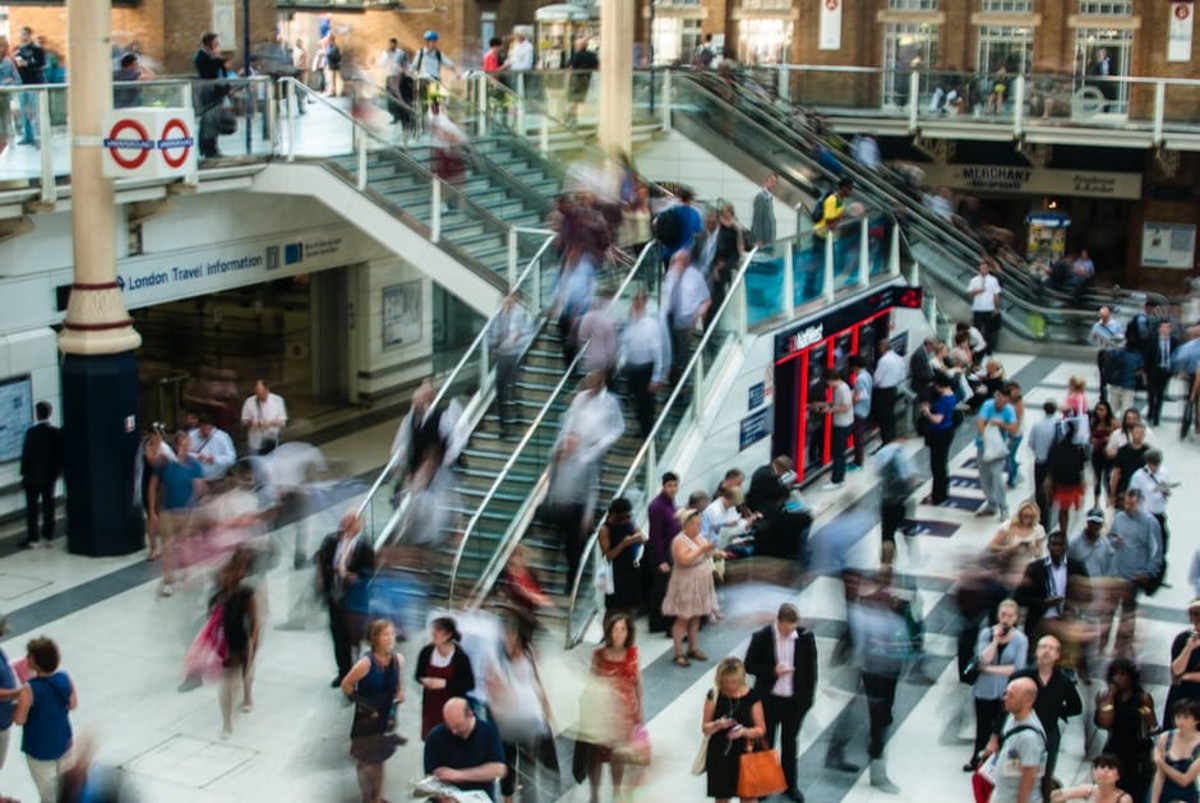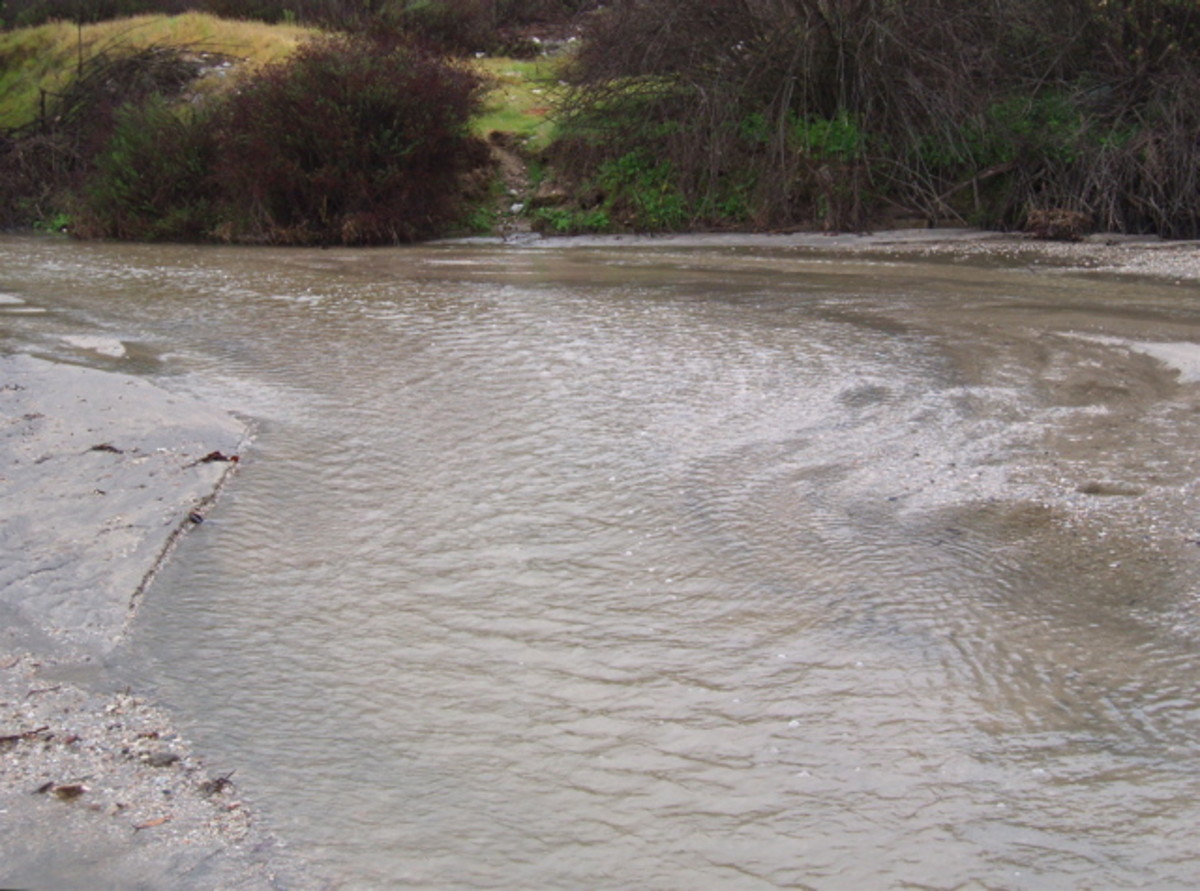How To Feed 10 Billion People?
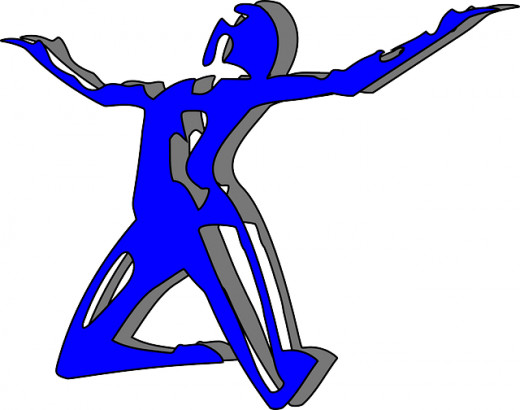
Test Your Knowledge
view quiz statisticsThe Figures
In 2050 the global human population won't be only 50% larger but all want to be more prosperous.
Primarily they'll need food, water, clothing, shelter and fresh air.
About half the population in India, hasn't even electricity. They will have in 2050. Or do we think they have less rights on this?
Secondarily most of them want to have a TV, computer, internet, smartphone, and to eat and drink happy meals and coca-cola. This will all have an additional global impact.
Mother Earth has to provide all this prosperity. Is this even possible when the population not only grows but wants to be more prosperous?
When the figures are combined to one consistent whole they are intimidating even for the most persistent optimists.
The average land usage is currently around 2.5 hectares per cosmopolitan. With the current population of about 7.3 billion people, we need 1.25 Earth's. We have just one. So, we have a colossal problem on our hands. And it isn't going away. It will only grow. Each day.
It's time to wake up for all of us.
The Simple Truth in 81 Seconds
More Adults, Less Kids
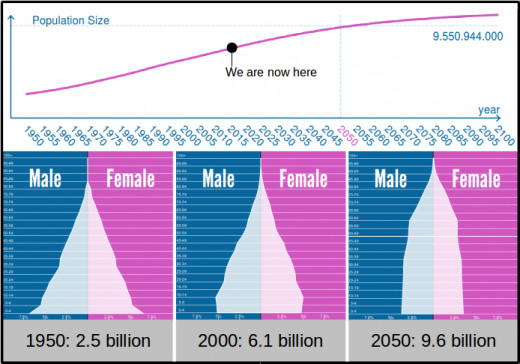
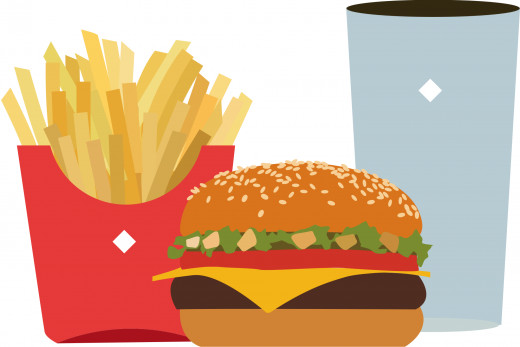
The Figures Require Some Adjustments
We are told that the Earth isn't big enough to feed the current population of 7.3 billion people.
That depends what you define under feeding.
It is scientifically proven that humans are vegetarians. There is no way to argue with this incontestable fact.
- Our hands are not made to tear flesh. Our hands are too subtle for that. Just look closely at the paws of your cat, especially when they are extended. They are meant to seize and hold down prey. We aren't made like this.
- Our teeth are neither made to tear flesh. Carnivores have long canine teeth. Look in the mirror and examine your teeth closely. Then check out the teeth of your cat.
- Why are animals slaughtered out of sight? Because most of us simply lack the instinct to kill and dissect corpses. But when you like this, you're sick.
- Our hands are made for grabbing and picking fruits, nuts and vegetables.
- Our intestines are too long to get rid of rotting flesh soon enough. Carnivores have developed short intestines for this.
- Digesting fruits, nuts and vegetables require longer intestines, and that is what humans have.
The consumption of meat causes a long list of health problems, from decreased energy and a need for more sleep up to increased risk for obesity, diabetes, heart disease, and cancer. All proven facts.
And health problems require health care. So this part of the economic system has become a self supporting cyclic system.
What would happen when all humans stop to eat meat? Shall we take a look?
Early humans had diets very much like other great apes, which is to say a largely plant-based diet, drawing on foods we can pick with our hands. Research suggests that meat-eating probably began by scavenging--eating the leftovers that carnivores had left behind. However, our bodies have never adapted to it. To this day, meat-eaters have a higher incidence of heart disease, cancer, diabetes, and other problems.
— The Power of Your Plate, Dr. Neal BarnardHuman Intestines Are Too Long For This: Meat Will Rot Inside
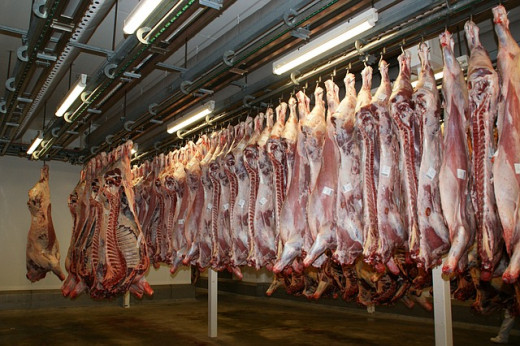
Best Vegetarian Cookbook
Land Usage For Production of Meat
The figures how much land is required to produce meat are varying widely.
One thing is for sure.
It takes just a fraction of land to produce protein-rich 'meat substitutes', like Lupine, Kidney beans, Lentils, Soy beans or whatever. But it takes between 15 to 20 times more land to produce the same amount of proteins in case of meat.
It is a fact that meat is the most ineffective way to produce proteins.
There is not one single objective reason for modern man to eat meat. We are no nomads, who used to eat meat because lugging tons of vegetables with them was too heavy, so they became specialized in catching or scavenging local prey as an addition to some vegetables and fruit that was gathered also locally.
Nowadays there are so many alternatives available to make a good meal. The only thing we need is to be more conscious of our behaviour, and which alternatives we have. We have tons of alternatives.
But do you know what prevents us? The consumption of meat made you stupid. Once it has catched you in stupidity it's hard to get out.
Zeitgeist 1 - It's Time to Wake Up
Your Life Will Change
Once you've stopped to eat meat and fish you'll be rewarded with an exploding consciousness. You'll loose an immeasurable ignorance within a few weeks.
What most people unfortunately don't know is that with the consumption of an animal, that was involuntary killed to feed you, you will also eat part of the suffering of that animal.
What did you know about the animal that you ate yesterday? Was it afraid before it died? Did it get hormones and penicillin? Do you still think meat is good for you?
Or did you think that the consumption of an animal that suffered before it was killed is beneficial to your health? Or did you maybe think it simply doesn't matter, and that meat is just meat?
Do you know what happens when you eat 'suffering'? Your conscious awareness will stay at a dramatical low level, the level of suffering and survival of the fittest. The consciousness of a thinking animal.
There's nothing wrong with eating eggs or drinking milk as long as the animal that provided this for you didn't suffer. If it did, this will backfire on you in the form of a lower frequency.
Why Scavengers Are Puppets of a Global Financial System
You can compare your 'frequency' with the clock frequency of the microchip in one of your devices. The higher the frequency the faster (read: smarter) it becomes.
With every stroke of the internal clock the processor is able to process instructions. So, the higher the frequency, the more instructions per unit of time it can process. Lowering the frequency will make a device dumber or less capable.
When the frequency drops beneath a certain value the person in question isn't able to resolve all input and becomes so to speak unconscious of the real environment. Input that would be crucial to solve, and to become conscious of, isn't processed anymore, and you've become a perfect 'puppet on a string', easy to control and manipulable through the input of the media.
Exactly the same happens with your internal clock when you eat meat or fish. It will start to run faster once you've dumped all low frequency foods or suffering related food.
So, the consumption of meat hampers your frequency to increase. The few controllers of the world know this. Meat knocks your clock down and makes them richer. How easy is it then to control the world? It's a piece of cake. Do you think this few controllers eat meat? Or fish? Of course not!
Do you get it now?
Zeitgeist 2 - Legalized Corruption
Vegetarians
Country
| % of Population
| Amount of People (×million)
|
|---|---|---|
India
| 31.0%
| 354
|
Taiwan
| 13.0%
| 3
|
Italy
| 10.0%
| 6
|
Sweden
| 10.0%
| 1
|
Germany
| 9.0%
| 7.5
|
Austria
| 9.0%
| 0.8
|
Brazil
| 8.0%
| 16
|
Israel
| 8.0%
| 0.7
|
United Kingdom
| 7.0%
| 7
|
Australia
| 5.0%
| 1.1
|
Switzerland
| 5.0%
| 0.4
|
Japan
| 4.7%
| 6
|
China
| 4.5%
| 60
|
Netherlands
| 4.5%
| 0.8
|
Canada
| 4.0%
| 1.3
|
So, How Much Land Do We Actually Need?
To provide all the necessary vegetal food for one person for one year, requires not more than 750 m2. This amount of land stands in stark contrast to a person who consumes daily a mix of different kinds of meat.
The average daily consumption of meat consists of a mix of about 250 grams of chicken, pork and beef, which requires daily about 30 m2 of land. That doesn't seem to look much, but when you compare this with the vegetarian who has enough with just 750 m2 per year, while the carnivore needs almost 11,000 m2 per year. And that's only for the meat. The land required for all other foods, for highways, factories, cities, airports, etcetera comes additional to this.
- The ratio of land usage between vegetarian and carnivore is 1÷15.
- It takes 52% of the land area, about 75 million km2, of the earth to feed the 6.8 billion carnivores.
- It takes just 0.25%, 375,000 km2, to feed the remaining 500 million vegetarians.
- If all people would be vegetarians, we would just need about 4%, 5.5 million km2, to feed the world population.
The vegetarian doesn't even have to change anything else. He/she doesn't have to hand over the car, or vacations, or job, or flight trips. Just cut all the meat and fish. And there wouldn't be any problem at all.
What Do Nutritional and Anthropological Scientists Say?
But old habits die hard, and it's convenient for people who love to eat meat to think that there is evidence to support their belief that eating meat is "natural" or the cause of our evolution. Some even think that it is healthy to eat meat.
The fact is that all leading nutritional and anthropological scientists from all reputable institutions say that humans are natural herbivores, and that we would be much healthier if we return to our herbivorous roots. This is the truth, and only this understanding can save the world from total destruction.
If you're not interested to save the planet, then do it to save yourself or your children. Save yourself and them from ignorance, stupidity, strokes, cancer, and heart attacks.
And if that doesn't do, what else could? War perhaps? Because war is the only way out of this deadlock if nothing changes.
Zeitgeist 3 - Shifting Paradigm
Conclusion
Most people have no idea what to do, or where to start after watching the Zeitgeist movies.
The best way to start is by stopping to eat meat and fish, for it does two major things:
- Your food-footprint is instantaneously reduced from 11,000 m2 to 750 m2
- Your conscious awareness will change rapidly, while your frequency gradually goes up, like the clock frequency of a computer. The world around you will start to look different.
Life will be much greater than it is now, and the world will start to look different.
It's time to wake up!
© 2015 by Buildreps


